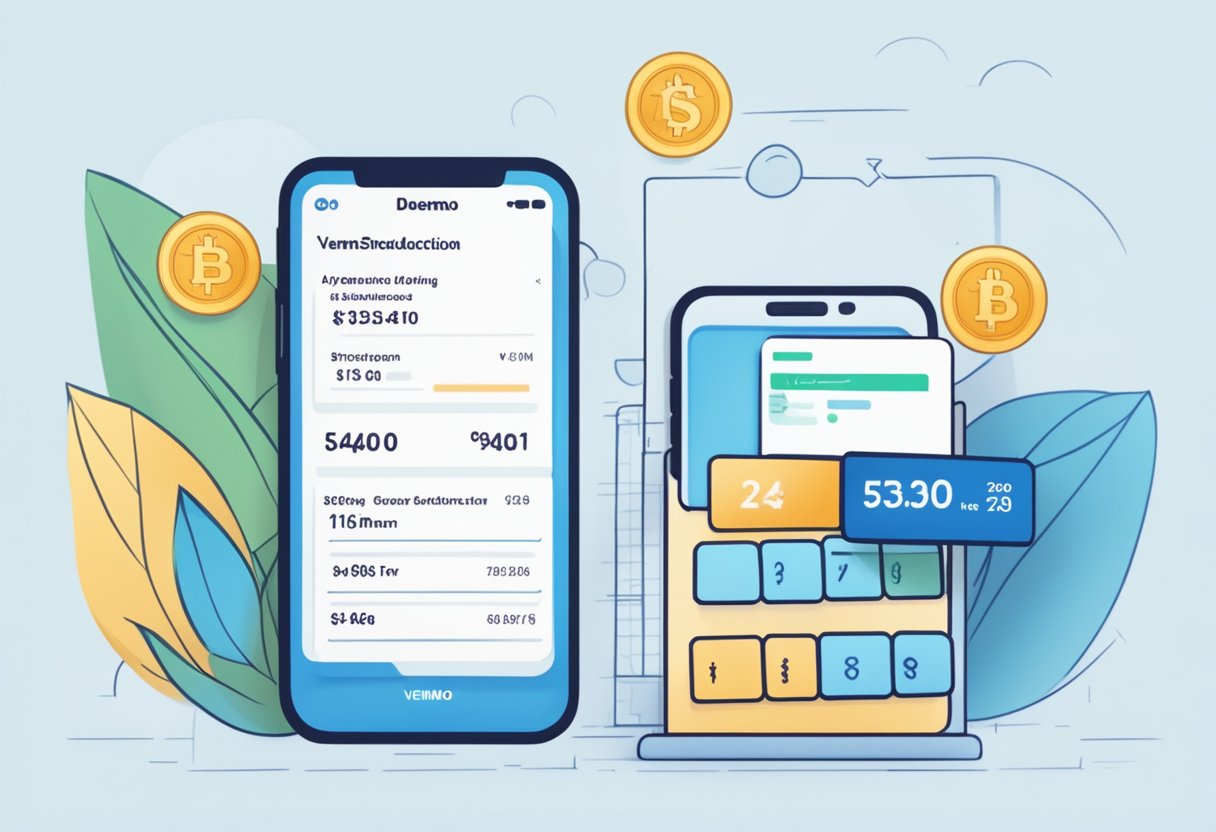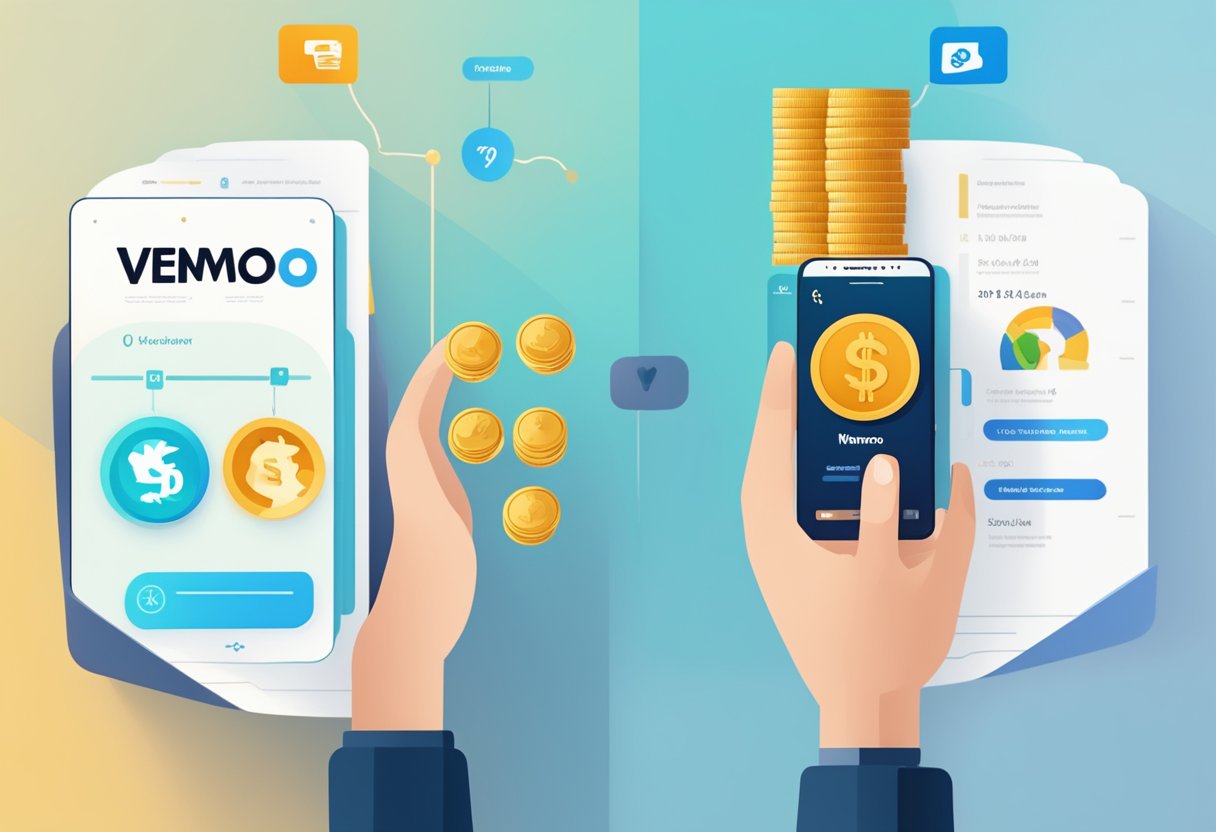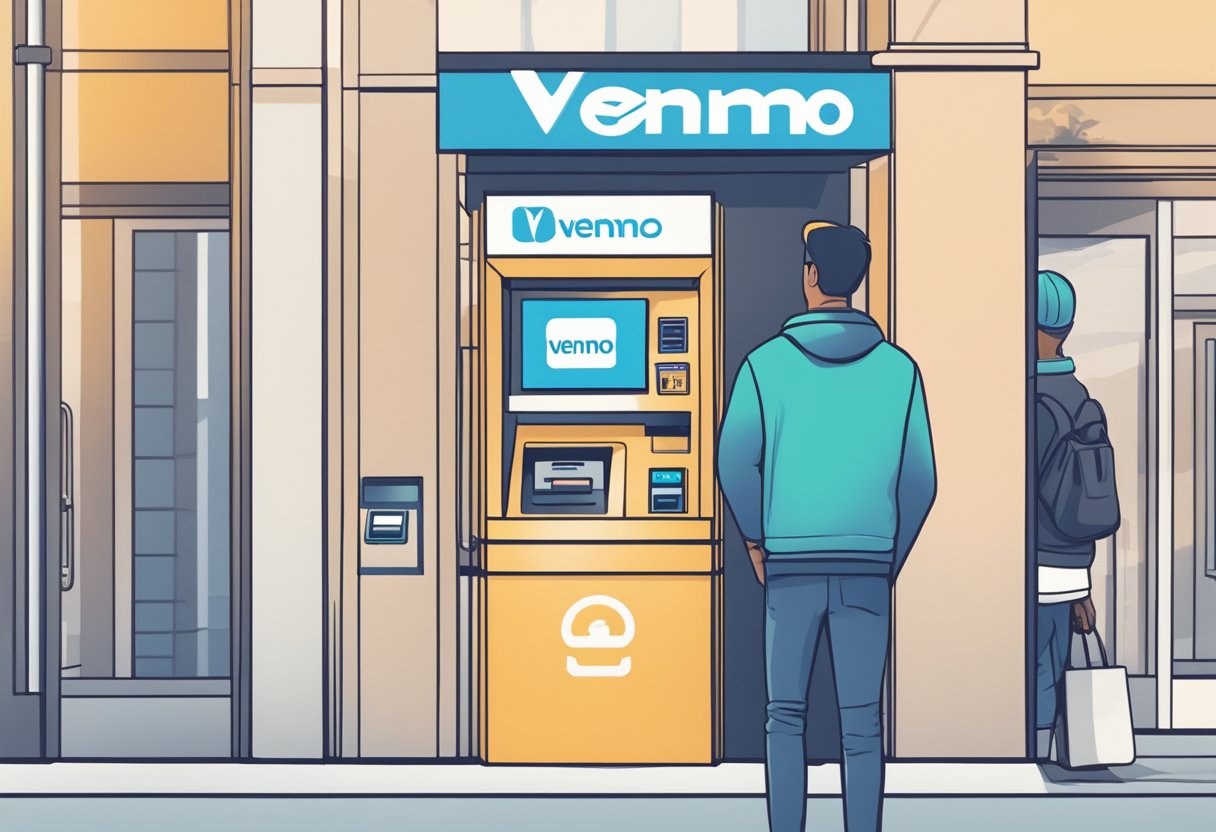Venmo Fees; Venmo is a popular mobile payment service that allows users to send and receive money from their friends, family, and businesses. As with any financial service, Venmo charges fees for its services. In 2024, Venmo is changing some of its fees, which may affect how users use the app.

Venmo fees in 2024 include personal and business transactions, standard and instant transfer fees, Venmo credit card fees, ATM and over-the-counter withdrawal fees, Venmo debit card fees, cryptocurrency fees, and other service fees. Personal transactions will remain free if users link their bank account or debit card, but will incur a 1.9% fee if they use a credit card. Business transactions will incur a 1.9% fee plus $0.10 per transaction. Standard transfer fees will remain free, but instant transfer fees will increase to 1.75% per transaction with a $0.25 minimum and $25 maximum.
Also you may like: Gofundme Fees 2024: Understanding the Current Rates and How They Affect Your Campaign
Overall, these changes may impact how users choose to use Venmo in 2024. For example, users may choose to link their bank account or debit card instead of using a credit card to avoid the 1.9% fee for personal transactions. Businesses may need to factor in the 1.9% fee plus $0.10 per transaction when deciding whether to accept Venmo payments. The new fees may also encourage users to use standard transfers instead of instant transfers to avoid the increased fees.
Key Takeaways
- Venmo fees in 2024 include personal and business transactions, standard and instant transfer fees, Venmo credit card fees, ATM and over-the-counter withdrawal fees, Venmo debit card fees, cryptocurrency fees, and other service fees.
- Personal transactions will remain free if users link their bank account or debit card, but will incur a 1.9% fee if they use a credit card. Business transactions will incur a 1.9% fee plus $0.10 per transaction.
- These changes may impact how users use Venmo in 2024, such as choosing to link their bank account or debit card instead of using a credit card, or using standard transfers instead of instant transfers to avoid increased fees.
Overview of Venmo Fees in 2024

Venmo is a popular mobile payment service that allows users to send and receive money from their friends and family. However, Venmo is not completely free. In addition to charging fees for certain transactions, Venmo also has limits on how much money you can send and receive.
In 2024, Venmo has updated its fees and limits. Here is what you need to know:
Venmo Fees for Personal Transactions
Venmo does not charge a fee for sending money to friends and family if you use your Venmo balance, bank account, or debit card. However, if you use a credit card, Venmo will charge you a fee of 3% of the total transaction amount.
Venmo Fees for Business Transactions
If you are using Venmo for business purposes, you will be charged a fee of 1.9% of the total transaction amount plus $0.10. This fee is charged to cover purchase protection on eligible payments.
Venmo Transfer Limits
Venmo has limits on how much money you can transfer and withdraw from your account. By default, the Venmo transfer limit for person-to-person transfers is $299.99 per week. When you verify your identity, the Venmo limit raises to $4,999.99 per week for person-to-person transfers.
Venmo Instant Transfer Limits
If you want to transfer money instantly to your debit card or bank account, Venmo charges a fee of 1.75% per transaction with a minimum of $0.25 and a maximum of $25. The limit for instant transfer to your debit card is $10,000 per transaction, while the limit for instant transfer to your bank account is $50,000 per transaction.
It is important to note that Venmo’s fees and limits are subject to change. Therefore, it is recommended to check Venmo’s website for the most up-to-date information.
Personal Transactions
Venmo is a popular peer-to-peer (P2P) payment platform that allows users to send and receive money from friends and family. Venmo is free to use for personal transactions, but it does charge fees for certain services.
Sending Money
When sending money to friends and family using Venmo, there are no fees for transactions funded by a Venmo balance, bank account, or debit card. However, if a user chooses to fund a transaction using a credit card, Venmo charges a 3% fee on the total amount sent. It is important to note that some credit card issuers may also charge cash advance fees for Venmo transactions.
Receiving Money
Venmo does not charge a fee for receiving money from friends and family. However, if a user receives payments for goods or services, Venmo charges a 1.9% + $0.10 fee on the total amount received. This fee is charged to the recipient of the payment, not the sender.
It is important to note that Venmo may limit the amount of money that can be sent or received by users. Venmo has a weekly rolling limit of $4,999.99 for sending and receiving money for personal transactions. Additionally, Venmo may require users to verify their identity and provide additional information before increasing their transaction limits.
In conclusion, Venmo is a convenient and easy-to-use payment platform for personal transactions. While there are no fees for sending and receiving money using Venmo, users should be aware of the fees and limitations for certain transactions.
Business Transactions
Venmo is a popular mobile payment service that allows individuals and businesses to send and receive money electronically. As with any financial service, Venmo charges fees for its services. In this section, we will discuss the fees associated with business transactions on Venmo.
Sales Transaction Fees
Venmo charges a fee for each transaction made through its service. The fee for sales transactions between Venmo accounts is 1.9% plus $0.10 per transaction. This fee is charged to the seller, not the buyer.
If a customer redeems a promo, the seller transaction fee is a standard rate of 1.9% plus $0.10 of the payment total, plus a promo redemption fee of 2.9%. Please note, Venmo is not able to refund seller fees for payments sent to your business profile from another Venmo account. The fees help Venmo to continue to provide this service and develop new features.
Business Profile Fees
In addition to sales transaction fees, Venmo charges fees for businesses using its service. The fees for Venmo Business Profiles include:
- Transactions: 1.9% plus $0.10 between Venmo accounts.
- Pay with Venmo: 3.49% plus $0.49.
- Credit card payments: 3%.
- Instant transfers: 1.75%.
- International payments: 1.5%.
It’s important to note that Venmo does not charge a monthly fee for its business profiles. However, businesses are subject to the same sales transaction fees as individuals.
Overall, Venmo offers a convenient and affordable way for businesses to accept payments electronically. However, it’s important for businesses to understand the fees associated with using the service to ensure they are making informed decisions about their finances.
Standard and Instant Transfer Fees
Venmo offers two types of transfer options: standard and instant. Standard transfer is free, but it takes 1-3 business days to complete. On the other hand, instant transfer is faster, but it comes with a fee.
As of March 2024, the instant transfer fee for Venmo Consumer accounts and Venmo Business Profile accounts is 1.75% per transaction with a minimum fee of $0.25 and a maximum fee of $25. This means that if you transfer $100 to your bank account using instant transfer, you will be charged $1.75.
It’s worth noting that Venmo also charges a 3% fee for sending money with a credit card. If you’re a seller and you receive money through Venmo, you will be charged a transaction fee of 1.9% plus $0.10.
Here’s a breakdown of the fees for Venmo transfers:
| Transfer Type | Fee | Processing Time |
|---|---|---|
| Standard Transfer | Free | 1-3 business days |
| Instant Transfer | 1.75% per transaction ($0.25 minimum and $25 maximum) | Within minutes |
When using Venmo, it’s important to keep these fees in mind to avoid any surprises. If you’re not in a rush to receive your money, it’s recommended to use the free standard transfer option. However, if you need the money immediately, the instant transfer fee may be worth it.
Overall, Venmo’s fees are competitive with other payment apps in the market. While there are fees associated with using the app, the convenience it provides makes it a popular choice for many people.
Venmo Credit Card Fees
Venmo Credit Card is a no-annual-fee credit card that offers cashback rewards on eligible purchases. However, it is important to understand the fees associated with the card to make informed decisions.
Annual Fees
The Venmo Credit Card does not charge an annual fee, making it an attractive option for those who want to earn rewards without paying an annual fee.
Interest Rates
The Venmo Credit Card offers a variable APR on purchases, which can range from 15.24% to 24.24%, depending on the creditworthiness of the applicant. The card also offers a variable APR on balance transfers, which can range from 15.24% to 24.24%. Cash advances are subject to a variable APR of 25.24%.
It is important to note that carrying a balance on the Venmo Credit Card can result in high-interest charges, which could offset the rewards earned.
Late Payment Fees
Late payments on the Venmo Credit Card can result in a fee of up to $40. It is important to make payments on time to avoid late fees and potential damage to credit scores.
Overall, the Venmo Credit Card offers a competitive fee structure, with no annual fee and a variable APR on purchases, balance transfers, and cash advances. However, it is important to make payments on time and avoid carrying a balance to maximize the benefits of the card.
ATM and Over-The-Counter Withdrawal Fees

Venmo offers its users a debit card that can be used to withdraw cash from ATMs and banks, but it comes with fees. According to Venmo’s official website, there is a $2.50 ATM Domestic Withdrawal Fee for using the Venmo Debit Card at ATMs. In addition, a $3.00 Over the Counter Withdrawal fee applies when a signature is required at the bank or financial institution. It’s important to note that additional ATM owner or bank fees may apply, which can increase the total cost of the withdrawal.
Users should also be aware that Venmo has transaction limits. The cash back daily limit for ATM withdrawals, over the counter withdrawals, and cashback is $1,000.00, which resets daily at 12:00 AM CST. The transaction limit is 30 transactions per day, which also resets daily at 12:00 AM CST.
It’s worth noting that there are ways to avoid these fees. For example, users can withdraw cash from a bank or financial institution, which does not incur the $2.50 ATM Domestic Withdrawal Fee. Additionally, users can avoid the $3.00 Over the Counter Withdrawal fee by using their Venmo Debit Card to make purchases instead of withdrawing cash.
Overall, while Venmo’s debit card offers a convenient way to access cash, users should be aware of the associated fees and transaction limits. By understanding the fees and transaction limits, users can make informed decisions about how to use their Venmo Debit Card.
Also read: